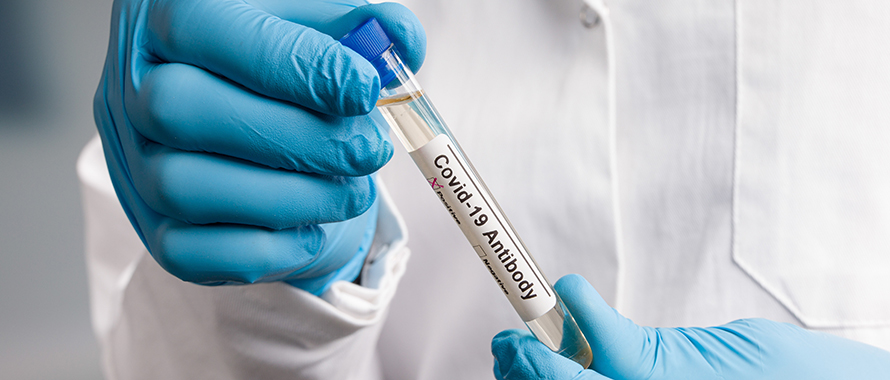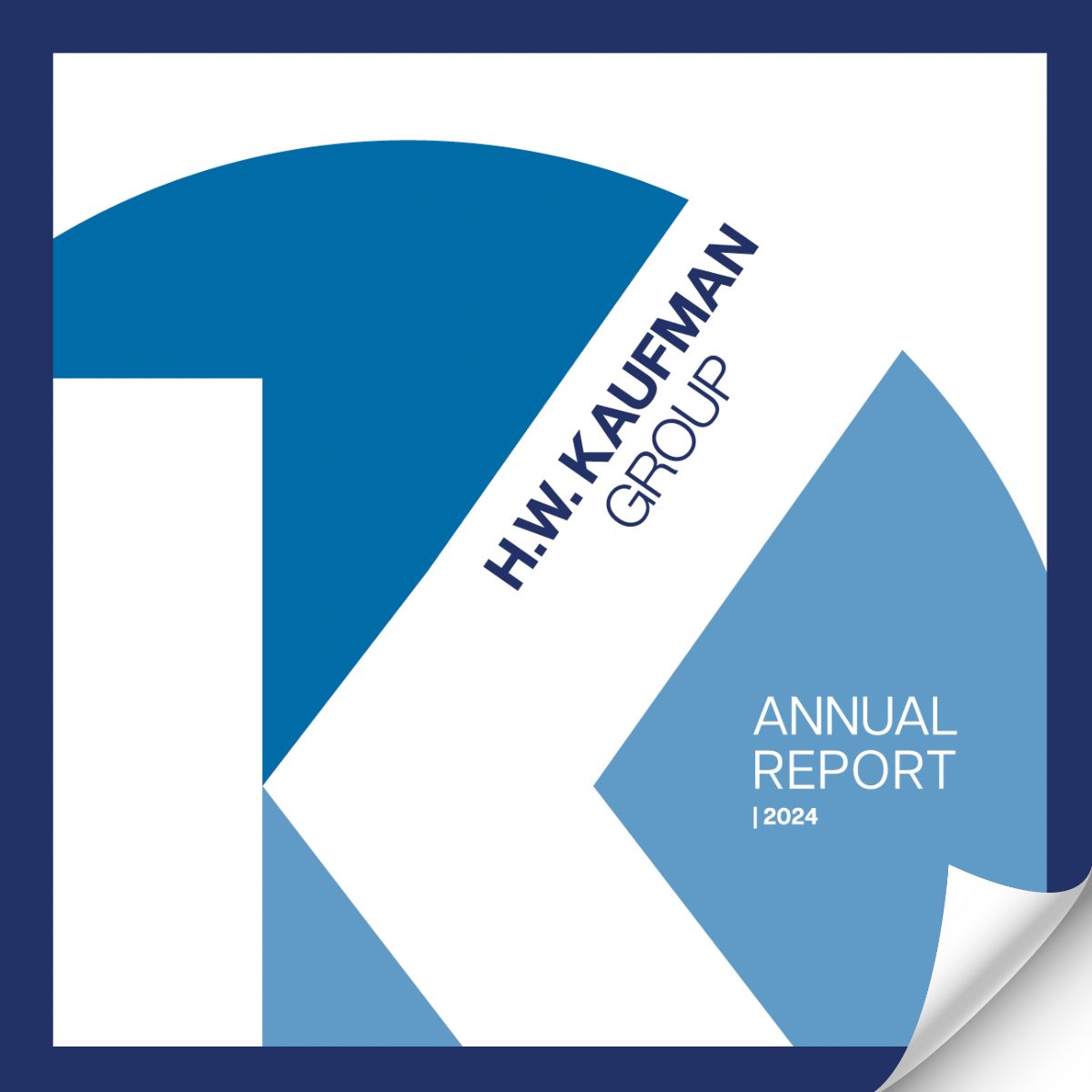Kroger Health recently announced that it will offer rapid COVID-19 antibody testing at all of its pharmacy and clinic locations by the end of November. The Kroger Company grocery store chain will charge $25 for the test, which can detect previous coronavirus infection and typically generates results in about 15 minutes.
The COVID-19 antibody test is reported to be available at Kroger’s 2,200 pharmacy locations and 220 clinics soon, expanding on the company’s other COVID-19 services, which include in-clinic and at-home diagnostic testing, and making it the first retailer to offer this option to its customers.
The FDA-authorized antibody test kit being used by Kroger is supplied by Whitmire Medical and the test will be conducted by licensed health professionals using a finger-prick blood sample. Kroger Health points out that research into how long COVID-19 immunity lasts is ongoing and that regardless of the antibody test result, customers should continue to practice recommended safety protocols to reduce transmission of the virus.

While making such testing more widely available can benefit the greater community, it also puts the provider at risk of being held liable in the event something goes wrong.
Any business offering COVID-19 testing assumes a level of liability risk. Chris Siegel, Managing Director, Burns & Wilcox, Orlando, Florida warns that not all Professional Liability Insurance and Commercial General Liability (CGL) Insurance policies include coverage for expenses related to liability that stems from providing these services.
“Coronavirus antibody testing absolutely increases a business’ liability risk,” Siegel said, noting that some CGL and Professional Liability Insurance policies exclude any expenses related to COVID-19. “While making such testing more widely available can benefit the greater community, it also puts the provider at risk of being held liable in the event something goes wrong.”
Retailers, health care workers, test manufacturers carry liability risks
Studies from both the U.S.1 and Canada2 have shown varying levels of accuracy for antibody tests, and experts have warned that a positive result could give patients a false sense of security while they may still be vulnerable to the virus.3
Health care providers who perform testing for COVID-19 antibodies or active infection could be held liable for administering a test incorrectly, causing injury, misreading a result or giving a false positive or false negative result. These would likely be covered by the provider’s Professional Liability Insurance, which covers mistakes made while rendering professional services.
“Lawsuits related to misdiagnosis of COVID-19 or any condition can seek damages for lost time from work, mental anguish, pain and suffering and more,” Siegel said. “These types of lawsuits can result in large jury awards if a provider is determined to be at fault.”
The cost of legal defense alone in a medical lawsuit can easily reach $100,000 or more, said Greg Wideman, Brokerage Manager, Healthcare, Burns & Wilcox, Chicago, Illinois. “A pharmacist or health care provider needs to have coverage for these kinds of expenses,” he said.
A lawsuit is also likely to name the retailer and parties tied to the medical product used. If such a lawsuit ends in a settlement or jury award, CGL Insurance can help mitigate those costs, as well as those related to bodily and personal injury to customers and product liability. Products Liability Insurance and/or Manufacturers Errors & Omissions Insurance can help with expenses incurred by parties tied to the test itself, such as manufacturers and distributors of various testing components.
“Oftentimes a health care provider is not providing a diagnosis or interpretation of the sample; rather, the provider just administers the test, places the collected sample in a machine, and the machine generates a positive or negative result,” he said. “The greatest liability lies in the products used to provide and interpret the test.”
While Professional Liability Insurance and CGL Insurance coverages may overlap, Siegel added, both policies are essential. “In a retail-based health clinic, the store would likely secure Professional Liability Insurance on behalf of the health care professionals it employs as well as CGL Insurance,” he said. “This ensures the company is covered as well as the individual provider for services rendered on behalf of the company and on company premises,” he said.
Risk transfer is key as grocery chains alter operations
Grocery stores in the U.S. and Canada have made frequent business adjustments during the pandemic, from reducing their hours for more sanitization time4 to adding contactless shopping options.5 Midwest grocery store chain Hy-Vee is unveiling a grocery cart sanitizing system that will eliminate the need for employees to manually clean carts multiple times each day. More than 2,000 stores will have the new system by mid-November, reportedly making the chain the first in the industry to roll out the new cart-cleaning technology in response to the COVID-19 pandemic.
“Potentially reducing human error in the sanitization process could be beneficial,” said Meghan Maher, Manager, Property & Casualty, Atlantic, Burns & Wilcox, Halifax, Nova Scotia. “However, implementing a new process that uses a new piece of equipment involves other risk variables like accuracy rate, adequate before-market testing, and the experience and reliability of the equipment manufacturer.”
Using this type of equipment for sanitization could lead to lawsuits related to the machine, components or the process itself: the chemicals used, a slip-and-fall accident, or incomplete disinfecting.
“Lawsuits involving slip-and-fall accidents in grocery stores are quite common,” Maher said, noting that settlements in these suits can be upwards of six figures.6 “These accidents were tied to stores’ sanitization processes even before COVID-19, most often related to polishing, mopping or waxing floors.”

Potentially reducing human error in the sanitization process could be beneficial. However, implementing a new process that uses a new piece of equipment involves other risk variables...
Shoppers’ fears about coronavirus transmission are exacerbated by headline-making studies like the one recently released by Harvard University’s T.H. Chan School of Public Health, which found that the risk of contracting COVID-19 when traveling by airplane was far lower than the risk of contracting the virus while engaging in other activities, such as shopping at a grocery store.7
The Centers for Disease Control and Prevention (CDC) points out that the main means of transmitting the virus in a grocery store is most likely person-to-person contact8 and recommends limiting in-person shopping and taking precautions when contactless shopping is not possible. Nevertheless, fears and suspicions surrounding surface-based transmission of COVID-19 are pervasive.
The use of a cart sanitizing system could provide a potential degree of risk transfer from the store to a product manufacturer, which could be named a lawsuit. CGL Insurance or Manufacturers E&O Insurance could help manufacturers with expenses stemming from such suits, Siegel said. Manufacturers E&O Insurance could potentially include coverage for incidents involving communicable diseases if the primary function of the product is disinfection, Siegel explained.
Store owners should always check that the contractors, suppliers and manufacturers they work with are properly insured and review their hold-harmless agreements with those partners, Maher said. “Store owners should request proof of insurance from any subcontractor via certificates of insurance,” she said. “They may also request to be added as an additional insured on any vendor or manufacturer’s policy.”
Virus transmission risks for employees, privacy concerns
An October 29 report published in Occupational and Environmental Medicine found that grocery workers were at serious risk of coronavirus infection; at one Boston, Massachusetts store studied, 20 percent of workers tested had positive nasal swab results.9 It was reported in May that hundreds of food-retail and pharmacy employees in Canada had tested positive for COVID-19 and several had died.10
Retailers offering COVID-19 tests could face heightened liability from infected individuals who enter their stores to undergo testing and infect other shoppers or staff members. This scenario carries a potential for lawsuits against the store from customers who claim the store is liable for exposing them to or infecting them with the virus, as well as for Workers’ Compensation Insurance claims from employees who fall ill. Workers conducting tests for COVID-19 antibodies rather than active COVID-19 infection could contract the virus from an infected testing subject who is asymptomatic. “Workers’ Compensation Insurance is a remediation course for injury in these situations, according to the courts,” Siegel said.
Excess Liability Insurance, which provides liability limits above and beyond a company’s other insurance policies, is a necessary consideration for grocery stores navigating liability concerns surrounding COVID-19. “Given the uncertainty of the situation, store owners need to do everything they can to try and protect themselves sufficiently,” Siegel stressed.
As retail outlets handle more protected health information due to coronavirus testing services, Cyber and Privacy Liability Insurance is also essential, especially amid the rising risk of health care data breaches,11 Wideman added. This type of insurance can help with costs of notification, remediation and other expenses in the event of a data breach. “Medical data is a popular target for hackers,” Wideman said. “Store owners need to make sure their coverage for data privacy-related litigation is adequate.”
Legal Expense Insurance should also be considered by grocery stores, Maher said. “Legal Expense Insurance can help cover legal costs and gaps in traditional CGL Insurance policies for a typically modest premium,” she said.
Individualized, effective solutions
Wideman emphasized that when a grocery store makes changes like adding a new service or technology, notifying the retailer’s insurance broker is critical. “It is really important to have an expert review coverage and make sure there are no gaps,” he said. “Store owners should ask their brokers questions, especially around COVID-related issues.”
Communicable disease exclusions on commercial insurance policies were not standard in Canada prior to the pandemic but are now more common, Maher said, so regular consultations with insurance brokers or agents are more important than ever. “The world has changed dramatically and so have risk exposures,” she said. “Insurance brokers are working diligently to ensure they can effectively advise their commercial clients on best practices to protect themselves and end users.”
It is really important to have an expert review coverage and make sure there are no gaps. Store owners should ask their brokers questions, especially around COVID-related issues.
No two retail industry insurance policies will be alike, Siegel said, and an experienced broker will be able to tailor coverage to meet the specific needs of an individual business. “This kind of coverage is highly specialized,” he said.
Insurance is often the first expense to be scaled back during tough economic times, Siegel added, but this is when such protection is often most needed. “If a jury award ends up being $100 million but the company sued has only $50 million in coverage, that company could potentially have to absorb a $50 million loss or file for bankruptcy and close its doors,” he said. “It is truly a much better business decision to maintain adequate insurance coverage.”
Sources 1 Dunleavy, Brian. “Studies Find Varying Accuracy of COVID-19 Antibody Tests.” Contagion Live, October 2, 2020. 2 Flanagan, Ryan. “Canadian-led research casts doubt on accuracy of COVID-19 antibody tests.” CTV News, July 1, 2020. 3 Jagannathan, Meera. “‘Be very careful about giving people a false sense of security’: Should you get a coronavirus antibody test?” Market Watch, May 22, 2020. 4 Bogart, Nicole. “How to grocery-shop safely during the COVID-19 outbreak.” CTV News, April 9, 2020. 5 Reiley, Laura. “Bigger hauls, fewer choices: How the pandemic has changed our grocery shopping habits forever.” The Washington Post, September 1, 2020. 6 Grant, Jason; Toutant, Charles; and Parmley, Suzette. “Slip on Grapes at ShopRite Leads to $1.5 Million Settlement in Middlesex.” New Jersey Law Journal, May 3, 2019. 7 Hayes, Kelly Taylor. “Harvard study: Flying poses lower COVID-19 risk than grocery shopping with proper safety measures.” Fox 5 Atlanta, October 30, 2020. 8 Dominko, Mura. “There's One Main Way to Contract COVID-19 When Grocery Shopping, CDC Says.” Yahoo! Style, October 31, 2020. 9 Christensen, Jen. “About 20% of grocery store workers had Covid-19, and most didn't have symptoms, study found.” CNN Health, October 29, 2020. 10 Blackwell, Tom. “Hundreds infected, several dead: How COVID-19 has affected the unsung essential workers in retail.” National Post, May 23, 2020. 11 National Institutes of Health. “Healthcare Data Breaches: Insights and Implications.” May 13, 2020.




